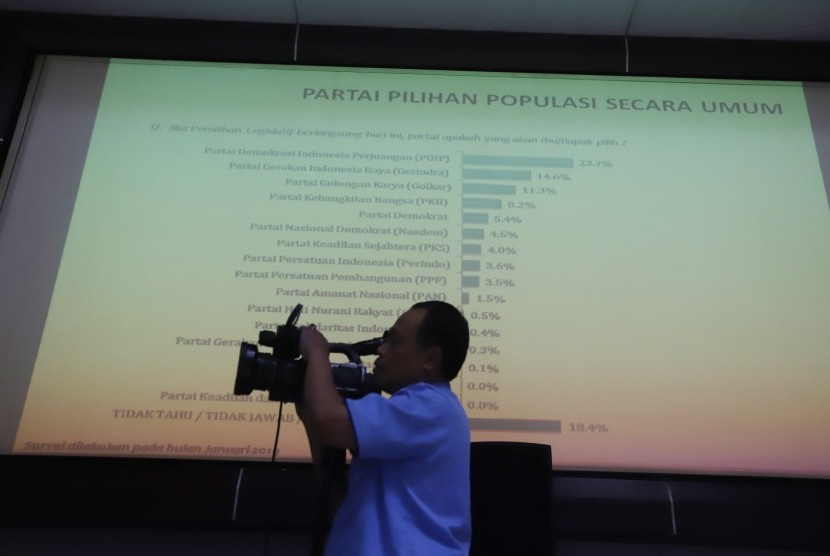REPUBLIKA.CO.ID, JAKARTA -- The results of the Denny JA Indonesia Survey Circle (LSI) survey showed that the Indonesian Democratic party of Struggle (PDIP) won the millennial voters segment. This segment of under 40 years old are around 45 percent of the total eligible voters.
"Among millennial voters, PDIP is still superior with 20.1 percent of the vote follows by Gerindra party (16.2 percent), the Golkar Party (9.7 percent), the Democratic Party (7.2 percent), and PKB (7.1 percent), "said LSI Denny JA researcher Rully Akbar at the LSI Denny JA office in East Jakarta on Wednesday (20/2).
The Perindo Party (5.2 percent), the Nasdem Party (4.8 percent), PKS (4.6 percent), PPP (3.5 percent), and PAN (1.7 percent) favored by millennial, respectively. Other parties only received 1 percent of vote from millennial segment, namely the Garuda Party, Hanura Party, PSI, Berkarya Party, PBB, and PKPI.
"Millennial voters who stated that they did not know / did not answer / did not decide are 17.6 percent," Rully explained.
In addition, electability of the Gerindra Party is superior to PDIP in the educated voter segment. The Gerindra Party surpassed PDIP to eight percent in the segment that has a base of 11.5 percent of the total population.
"In the educated voters segment, the Gerindra Party is the most prominent with 23.9 percent of voter while PDIP with 15.9 percent in the runner-up place," said Rully.
He added, the Democratic Party with eight percent of votes was in the third place followed by PKS with 7.2 percent and the Nasdem Party of 5.8 percent.
This survey was conducted on January 18-25, 2019 involving 1,200 respondents. The survey was conducted in 34 provinces in Indonesia with a multistage random sampling method. Interviews were conducted face-to-face using questionnaires. The survey's margin of error is 2.8 percent.


